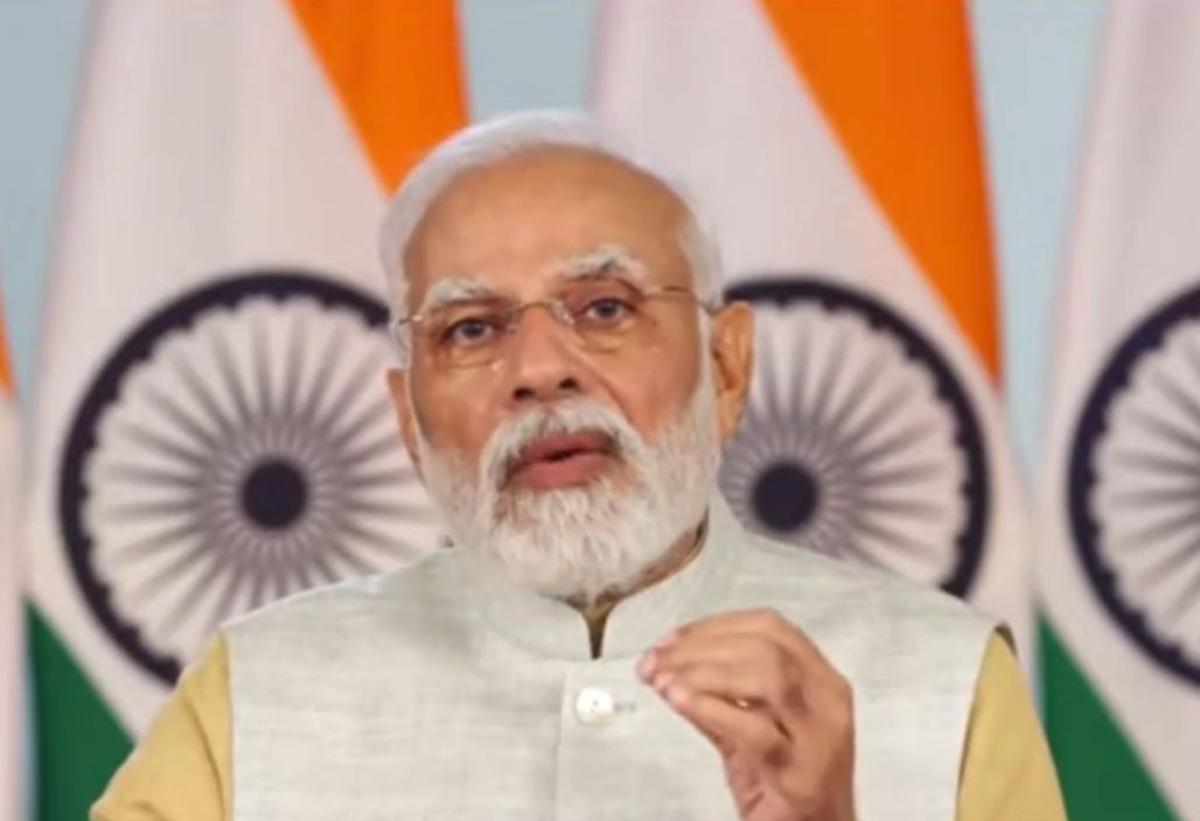
Technology a tool for inclusion in India, says PM Modi
The Hindu
The UNWGIC conference will be attended by over 2000 delegates from about 120 countries
In India, technology is a tool for inclusion and not exclusion, said Prime Minister, Narendra Modi at the inaugural of the second United Nations World Geospatial Information Congress (UNWGIC), in Hyderabad on October 11, 2022.
“Geospatial technology has been driving inclusion and progress. Take our SWAMITVA (Survey of Villages and Mapping with Improvised Technology in Village Areas) scheme, we are using drone to map properties in villages. For the first time in decades, people in rural areas have clear evidence of ownership,” he said speaking to delegates from several countries.
India’s steps at building infrastructure was on the backbone of geospatial technology. The South Asia satellite, said Mr Modi, was facilitating connection and communication in India’s neighbourhood.
India was celebrating 75 years of freedom from colonial rule and also the freedom to innovate. India’s geospatial sector had been opened up for its young bright minds. Data collected over 200 years had been made open and accessible to all. India gave a major boost to its drone sector as well opened its space sector to private entities and 5G technology, too, was taking off as well, he added.
“ (The principle of) no one should be left behind applies across. The covid-19 pandemic should have been a wake up call to everyone in the world in taking everyone along. Millions in the developing world needed diagnostics, medicines and vaccine yet, they were left to their own fate. There is a need for an institutional approach to help each other during a crisis. Global organisations such as the United Nations can lead the way in taking resources to the last person,” Mr Modi remarked.
Ahead of the Congress, Union Science Minister, Jitendra Singh, said that India’s geospatial economy is expected to cross ₹63,100 crore by 2025 at a growth rate of 12.8%. He said, geospatial technology has become one of the key enablers in socio-economic development by enhancing productivity, ensuring sustainable infrastructure planning, effective administration, and aiding the farm sector.
The conference will be attended by over 2000 delegates including at least 700 international delegates and participants from about 120 countries

 Run 3 Space | Play Space Running Game
Run 3 Space | Play Space Running Game Traffic Jam 3D | Online Racing Game
Traffic Jam 3D | Online Racing Game Duck Hunt | Play Old Classic Game
Duck Hunt | Play Old Classic Game











